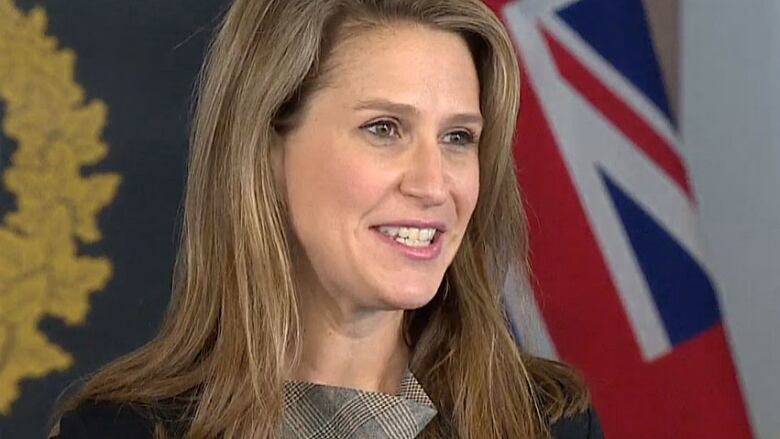Attorney General announces major changes to Ontario's police oversight system
PC government poised to dismantle reforms brought in by previous Liberal government

Doug Ford's Progressive Conservative government is overhauling police oversight in Ontario, making changes to the Special Investigations Unit (SIU), as well as the mechanism through which members of the public make complaints.
Attorney General Caroline Mulroney and Minister of Community Safety and Correctional Services Sylvia Jones announced the changes at Halton Regional Police headquarters in Oakville, Ont., onTuesday morning.
The changes are encompassed in new legislation that's yet to be passed:the Comprehensive Police Services Act, 2019. The PCs introduced the legislation at Queen's Park on Tuesday afternoon.
The bill, which will likely be approved due to the PC's majority,aims to streamlinethe investigative process of the SIU, which probesincidents involving police where a civilian is seriously injured or dies, or makes an allegation of sexual assault.
SIU will be expected to provide conclusions sooner
The changes mean that the SIU will now only investigate police useuse-of-force, arrestsor motor-vehicle pursuits that resultin serious injury or death, when an officer discharges a firearm, or when there is an allegation of sexual assault.
In all other circumstances, responsibility will lie with chiefs of police and other designated authorities to notify the SIU if they "reasonably believe" than an officer's conduct resulted in the injury or death. Under current rules, officers can be investigated if someone dies of a medical problem or by suicide.
"If a police officer tries to stop a suicide attempt but is unsuccessful, he or she is treatedlike a suspect ... If a police officer responds to a violent crime, tries to perform CPR but is unable to save the life, he or she is treated like a suspect,"Mulroneysaid Tuesday.
"This is not what the SIU should be doing."
The bill also calls for the SIU to complete investigations within 120 days, or provide an explanation if that benchmark cannot be met.
Officers are still compelled to co-operate with an investigation, Mulroney said, but fines have been lowered for failure to do so. Under the previous government's legislation, officers could be fined up to $50,000 and face a jail sentence of up to one year. Now, the fine is $5,000 for a first incident, and $10,000 for subsequent ones.
The new legislation would replace the Bill 175, which was introduced by the previous Liberal government. That bill had bolstered the mandates of the province's oversight agencies, including the SIU, the Office of the Independent Police Review Director (OIPRD) and the Ontario Civilian Police Commission (OCPC).
'Ontarians should know where to turn'
The bill scraps the OCPC andconverts the OIPRDinto the Law Enforcement Complaints Agency (LECA), which will receive and screen public complaints involving police officers and other law-enforcementofficials.
"When there are concerns with policing in this province, Ontariansshould know where to turn," Mulroney said.
The new bill also includes mandatory training for all new officers, specialconstables and police board members across the province on human rights, systemic racism, diversity and Indigenous issues.
It also ensures that certain calls to police cannot be outsourced to a civilian, as was proposed in the previous government's legislation.
What it does not address is the issue of carding, or random street checks by police based on race.
Jones said Tuesday the PCs do not support police stops based on race, and have no plans to allow for carding in the province.
Past government's legislation was 'anti-police,' Mulroney says
The attorney general attacked Liberals for introducing legislation that was "anti-police" and treated officers as "potential offenders."
"Police officers are everyday heroes in our communities,"Mulroneytold reporters.
Last summer, the PC government halted the implementation of the Liberals' Bill 175, which had been passed by the legislature in the spring. The bill included some of the most significant changes to Ontario's Police Services Act in more than 25 years, and increased the scope of what the SIU, OIPRDand OCPC could investigate.
The reforms, as are some of the changes proposed by the PCs, largely came out of a report by Justice Michael Tulloch, who was tasked with making recommendations for strengthening police oversight.
The newly-proposed bill does carry over the provision in Bill 175 that gave chiefs of police the power to suspend officers without pay in some circumstances.
More from Queen's Park:
With files from Mike Crawley and The Canadian Press












_(720p).jpg)


 OFFICIAL HD MUSIC VIDEO.jpg)
.jpg)



























































































